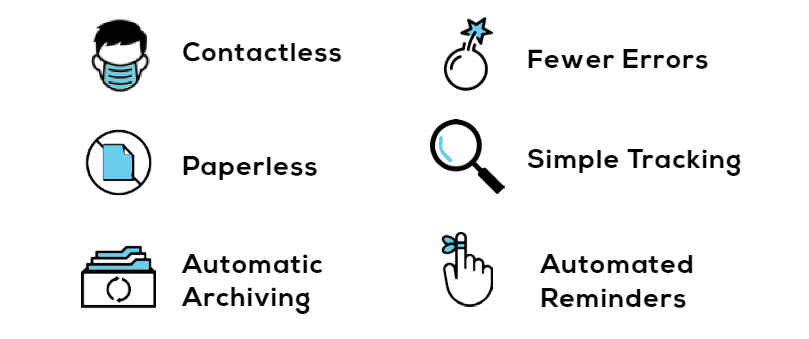Section 2. Why Now?
In a recent LeapPulse survey of HR professionals, 83% of respondents said their organizations had become more focused on digital transformation during COVID-19, and 80% of respondents believed they’d continue to accelerate in that direction post-COVID.
We believe there ́s a simple reason behind those overwhelming numbers: many organizations saw HR Tech as a need pre-COVID. So as the crisis hit, they weren’t wasting time debating the validity of the concept per se. For many organizations we work with, it has quite literally been a matter of time; waiting for the right moment to focus on digital improvements. COVID-19 simply provided the right combination of necessity and newfound capacity. This is the moment. In case you’re still on the fence, here is a brief list of compelling reasons to move away from face-to-face, paper-based processes and towards digital solutions:

The Role of Your Advisor: If your benefits broker isn’t having pro-active discussions about HR tech in light of the global COVID-19 pandemic, it might be time to talk to a true benefits advisor. Click here to schedule a demo of how we work with clients on strategic tech issues
Sometimes we assume that technology makes us less personal, and in a way, less human. Ironically, there are very human motivations for automating and digitizing HR processes. If done right, it frees up HR to provide leadership and support to your team in a more personal manner.
The HR professional who embraces digital transformation knows this intuitively. While a CFO manages certain assets (cash, investments, real estate), a strategic-minded HR professional manages an even more valuable asset: your people. But too often, executive-level talent in the HR suite is burdened with flawed paper processes and byzantine compliance procedures.
Digital transformation is an opportunity for HR professionals to prove they deserve a strategic seat at the table. If your HR team is pushing around paper, and wasting time trying to decipher illegible handwriting, they have less time to learn about and serve your employees. So while technology may initially appear as a threat to that personal connection, if done right, it can in fact bolster it.









